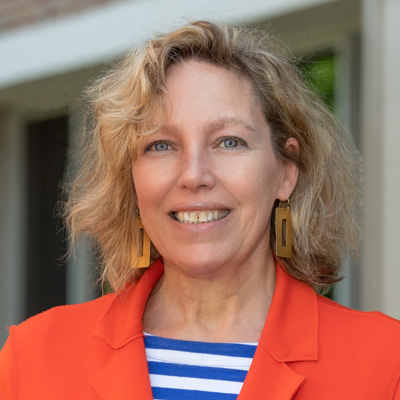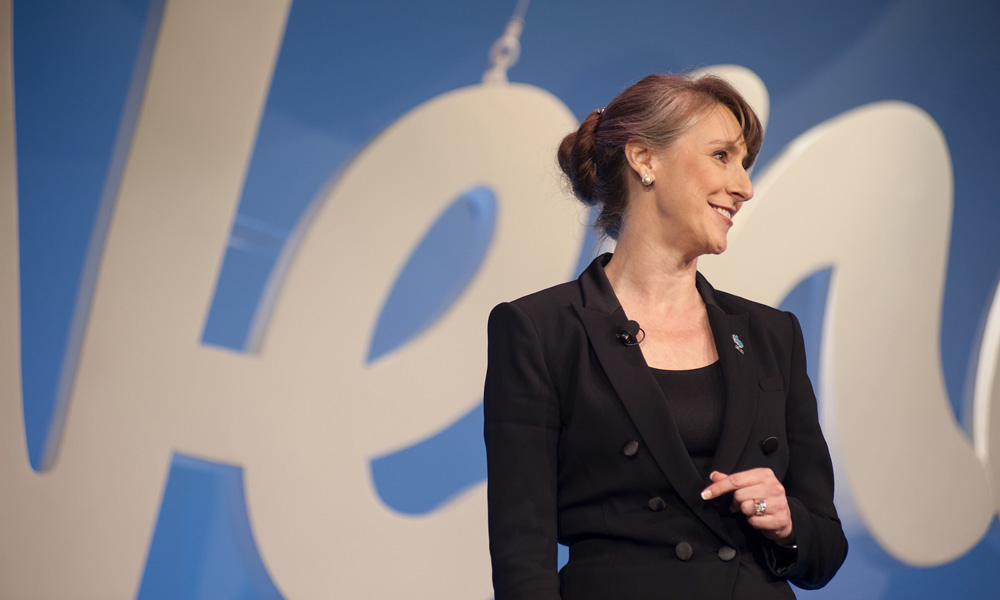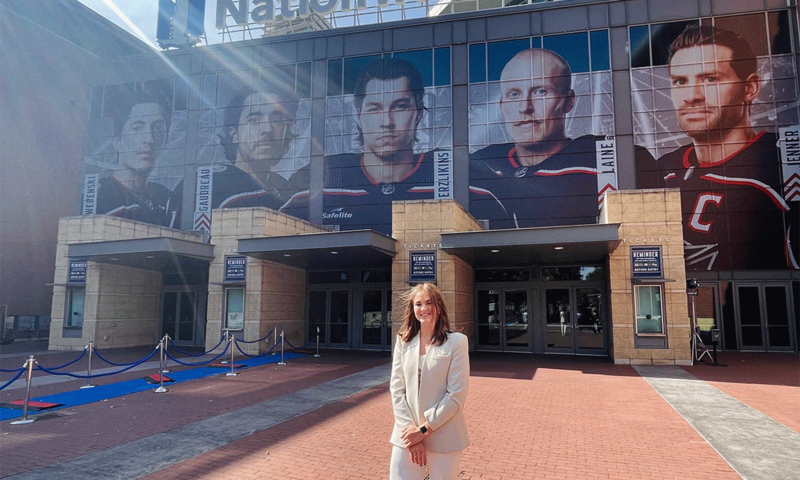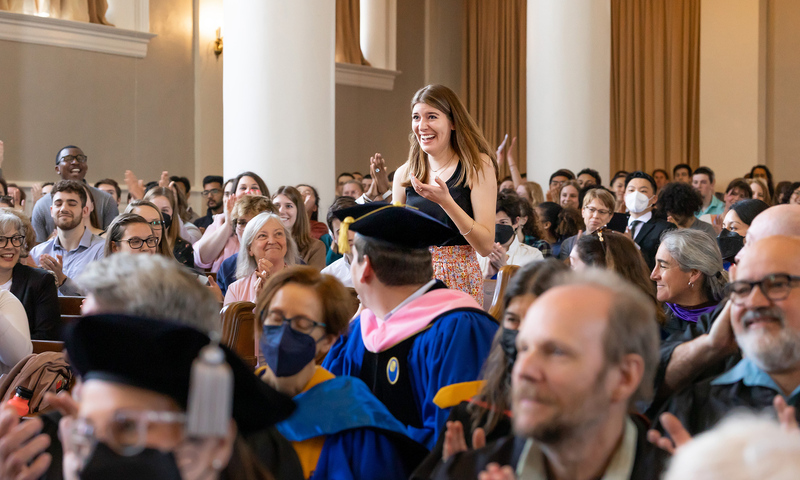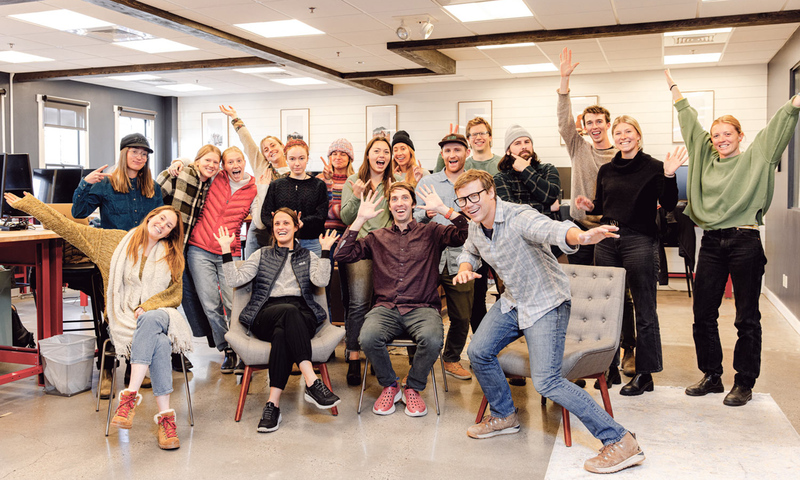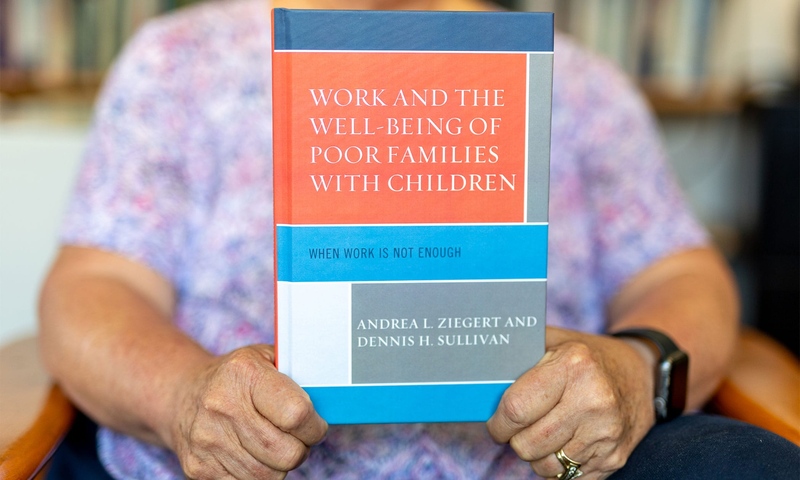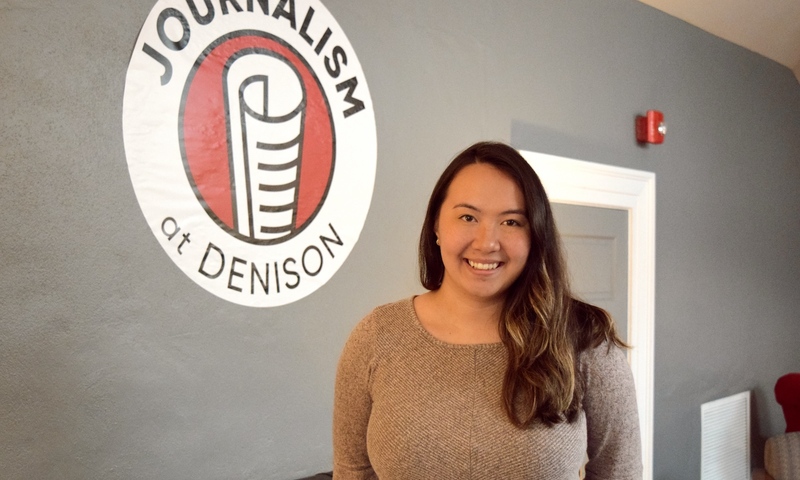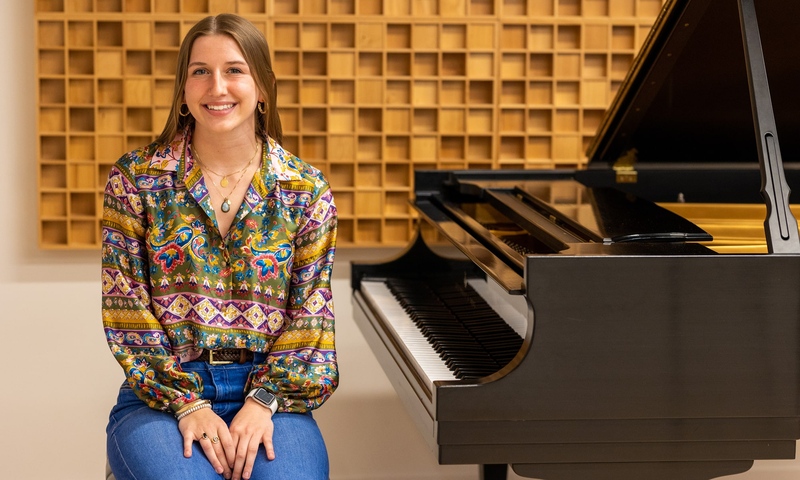Abigail Pringle ’96 never thought fast food or restaurants were her thing. It’s also not the first place you’d expect to find a religion major. But here she is, 17 years into her tenure at Wendy’s, now in the role of Chief Global Development Officer and International.
Over those 17 years, and her prior years at consulting firm Accenture, Pringle has had what many people would consider six different careers. She’s grown and evolved her skills as she worked her way across and up in the Wendy’s organization. It’s a skill she credits to her time at Denison and her liberal arts education, which gave her a lifelong curiosity and desire to grow.
“That’s something I learned at Denison—to be a student all the time. To challenge myself to always keep learning.”
At Denison, Pringle began as a political science major, but funny enough, she never actually took a political science class. Her friends in her dorm raved about an amazing class called Introduction to Theology, taught by Professor David Woodyard. Intrigued, she signed up for the class.
“I took that class and I fell in love. I became a religion major, with sociology and anthropology minors,” says Pringle.
“It was intellectually challenging. There weren’t necessarily clear answers. It was history and debate and discussion around views around religion — but not just religion for the sake of religion. It was about how we live in our world, how we make decisions and how people interact with each other and why.”
Those foundational skills in critical thinking, effective communication, and relationship-building perfectly positioned Pringle for her first career in consulting. As a consultant, businesses hired her to provide an objective perspective to help them solve their biggest challenges. She knew how to ask the tough questions, navigate interpersonal relationships, and develop a plan for systemic organizational change.
The opportunity at Wendy’s came through a referral from another Denison grad. The international restaurant chain was building an internal consulting department within the information technology business unit. The position allowed her to reduce time spent on the road and to invest in her personal life.
“It was about how we live in our world, how we make decisions and how people interact with each other and why.”
“I started there because I wanted to work in a business and learn how the organization functioned. And I was really lucky I got to help create a department from scratch and work with all the different units on how technology could be an enabler for the business.”
She worked in this role for four years, constantly asking questions and gaining cross-functional knowledge of the business. She also built relationships across the organization, which led her to a role in operations.
“That role led to me being involved with some really key projects that affected the business. I learned about operations and marketing and how we manage our facilities, and I was always able to leverage my technology background. Every one of those experiences led to a different role.”
That’s why she’s stayed at Wendy’s for so long. She’s followed a multitude of career paths and held diverse roles—and she’s been lucky enough to do it all within one, supportive organization that invested in her.
Professor David Woodyard is not surprised that Pringle has had such a remarkable career. “Abigail was exceptional when she arrived on campus and she graduated with refined analytic skills, intense interpersonal relationships, and an addiction to the future,” he says.
Now, she works on the development side of the business, growing the Wendy’s footprint both in North America, and most recently expanding the business internationally. She’s facing new challenges and evolving her interpersonal and critical thinking skills to meet the needs of diverse cultures and consumers.
“One of the reasons I wanted to take on the international role was that our international business is full business unit. It has marketing and operations, product, research and development. Everything across all the functions of a business.”
She sees it as training for her future career goal—to become the ultimate general manager as a CEO. To grow talent, technology, and ultimately the business.
“Because growth, growth is magic.”
